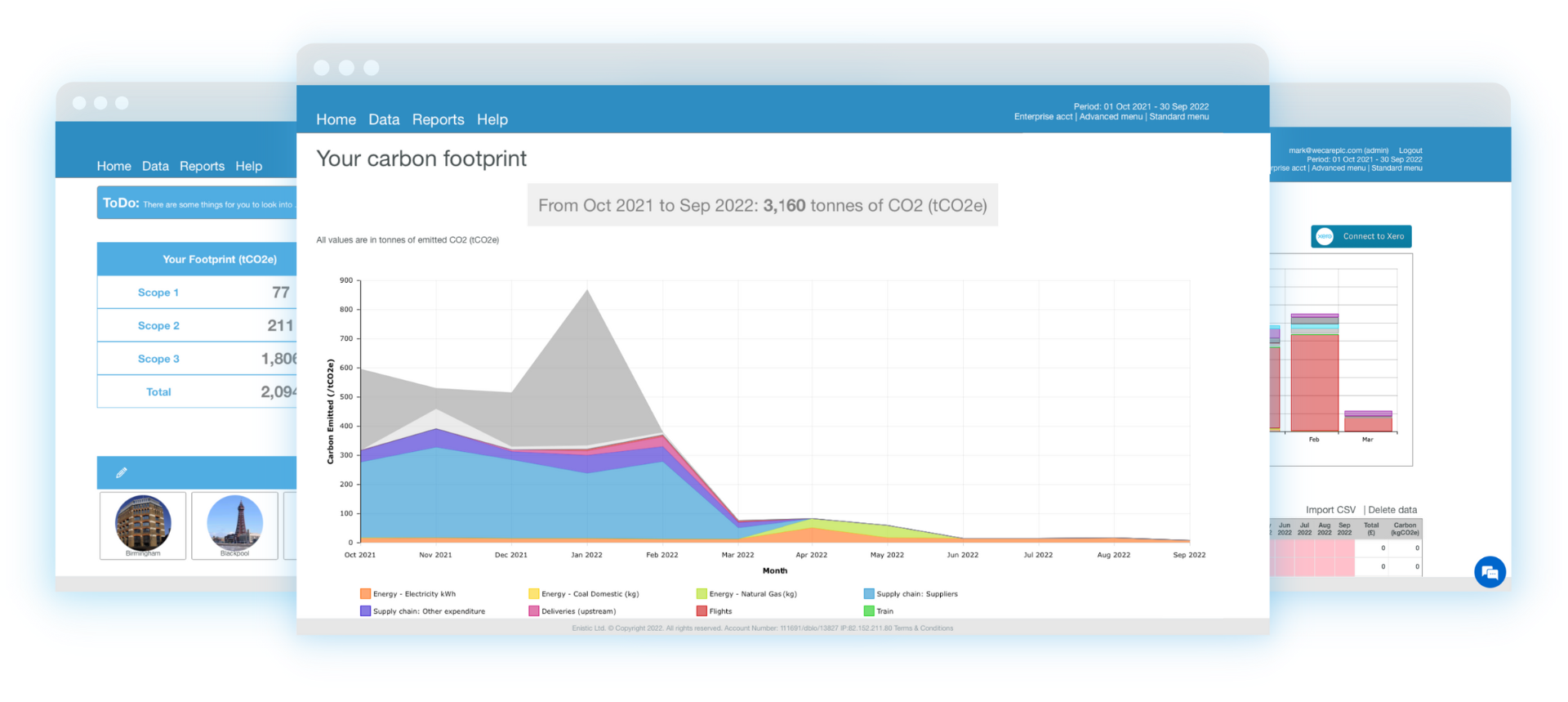Are you ahead or behind the curve?
A year ago, an acceptable level of carbon accounting for any business would have been understanding Scope 1 and 2 emissions. However, the situation has changed dramatically and now it would be important to question whether a business is on top of Scope 3 emissions. This change has been driven by new, international standards such as TCFD, CSRD and government’s PPN06/21 guidance.
So, are you leading the way or dangerously behind the curve?
The Leaders
Companies such as Unilever, Patagonia, Hewlett Packard and IKEA have been running a driven sustainability programme for nearly a decade. Driven by visionary leaders such as Paul Polman and Yvon Chouinard, they have not only got to grips with the Environmental impact of their business (the carbon accounting element) but have established very public Social Impact and Governance policies and started to invest heavily in the possibilities of a circular economy.
Their Supply Chain is being moved and adjusted over time, to not only have a neutral impact on the planet but a Carbon Positive one. They are helping to change the way businesses work by not only acting as thought leaders but by raising the bar along their entire value chain. They effectively have their own immediate house in order and are looking outside toward wider relationships.
No major decisions are made by these companies without considering its environmental impact.

Worthy Challengers
Companies who have committed to SBTI accreditation such as Tesco and Accenture are committed to both aggressive mid-term carbon reduction and real ambitions to positively impact the society in which they function.
They have embraced the E, S and G elements of Sustainable business and have attempted to make radical changes to the way they do business in terms of supply chain management, partnerships and social enterprise.
SBTI remains the best route to Carbon Net Zero for any company that thinks globally. They may have significant issues still to overcome in terms of reaching real Carbon Neutrality but know at least what they face.
In the Pack
Companies who are currently attempting to address The Task Force for Climate Related Financial Disclosures ( TCFD) and who have at least made a commitment to SBTI for the future are, even if pushed, moving in the right direction.
It is possible that they are still struggling to find a cohesive ESG policy and roadmap but they at least know where they are in terms of Carbon Footprint and have set considered carbon reduction targets for the mid-term and longer term.
They are still in the discovery stage in terms of the challenge but their board is at least planning for the future. They are likely to have some form of in-house Sustainability Management and may have invested in software to centrally measure, analyse and report on emissions.

Huffing and Puffing
Companies who up until now have limited their carbon accounting response to regulatory requirements such as SECR, PPN 06/21 and or ESOS and who may have had a few meetings of an inhouse ESG committee are, in truth, behind the curve.
These companies will normally rely on Facilities Management Teams, HSEQ or even Finance to try and understand emissions and will have neither any proven way to gather and analyse data or staff dedicated to driving sustainability within the business.
If they do have any people trying to make a difference, they may not have the buy-in needed at board level to really make the necessary changes to policy, ambition and mindset.
Still at the Start Line?
There are literally thousands of companies that, due to other commercial pressures, lack of regulatory standards, or unawareness of the risks, have not taken any steps to understand their greenhouse gas emissions.
Included within this group will be most SMEs who are only now being offered some help to understand the challenges they face, the risks to their future through inactivity and the potential benefits to embracing sustainability. Through new standards like PPN 06/21, many are now realising that their survival could hinge on what they do next.
They have our real sympathy as they have been generally left to fend for themselves.

Free Consultation

Peter Provins is our Head of Customer Success, helping companies with their Environmental and Sustainability compliance. Peter knows everything there is to know about corporate sustainability and is more than happy to help!
Book a free phone consultation with Peter to discuss your compliance needs and what you should do next.

As the Head of Healthcare at Enistic, Brett manages environmental compliance for NHS suppliers. Brett Denly has a wealth of knowledge on PPN 06/21 and ESOS, supporting the Greener NHS Programme and the Net Zero goals that they’ve put in place.
If you’re in the healthcare industry, book a free phone consultation with Brett to discuss your compliance needs and what you should do next.
The Enistic Platform

Our cloud-based carbon management platform pulls together your carbon data into one, easy-to-access place. Intuitive dashboards help you to visualise key metrics, and monitor performance at a glance. The built in analytics suite enables you to create customisable reports that can be exported and shared with your organisation. Download reports and share your carbon data and progress easily.
• Live Carbon Footprint
• Track & report your progress to stakeholders
• Up-to-date carbon conversion factors
•Analyse and compare individual sites
•Automatic data upload
•Downloadable and customisable reports for PPN 06/21, SECR, ESOS & TCFD




